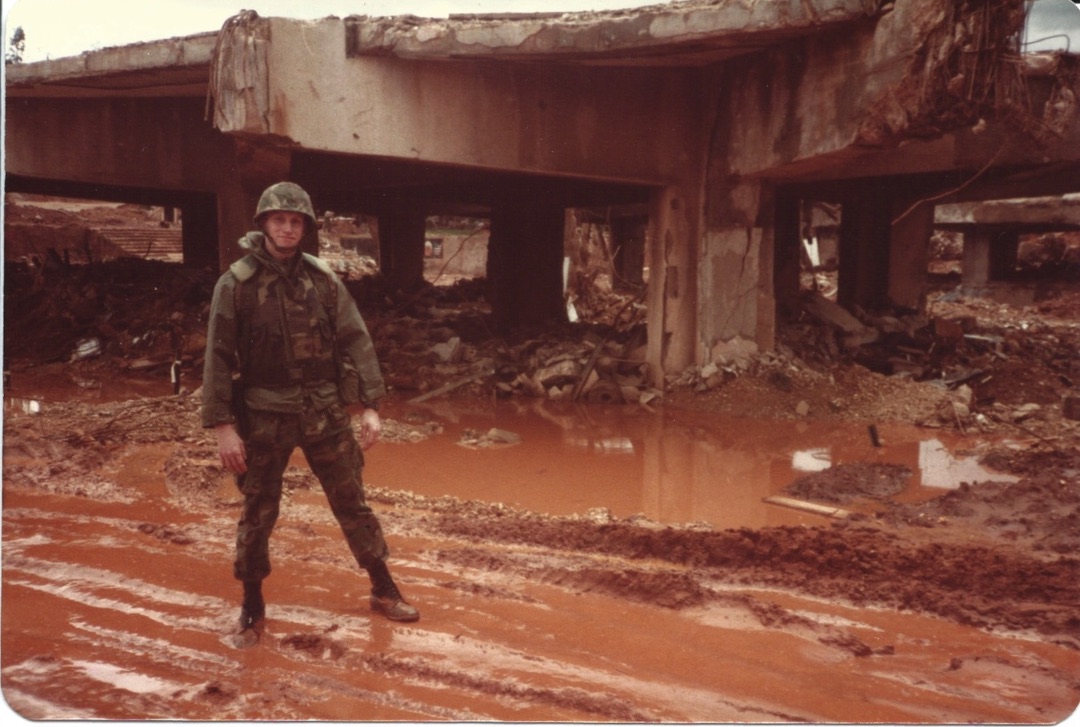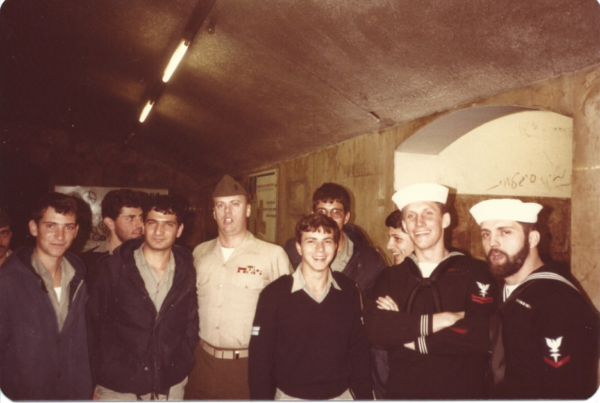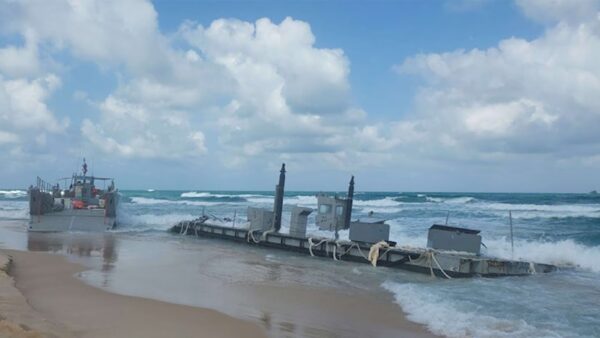We finally have a Leader in the White House.
I was a member of two renowned infantry battalions while serving as a company-grade officer in the Marine Corps. The first was the 1st Battalion, 9th Marines (1/9), and the second was the 1st Battalion, 8th Marines (1/8). 1/9 was known as the Walking Dead, a moniker they picked up after losing a rifle company (Bravo) to a North Vietnamese Army ambush in the Leatherneck Square area of Northern I Corps in 1967. 1/8 was the battalion targeted by Iran in the 1983 Beirut bombing.

The term “The Walking Dead” originated as a pejorative label for the battalion, referring to it as a hard-luck outfit that suffered excessive casualties. Vietnam-era Marine infantry battalions averaged 800 men. During the four years 1/9 fought in Vietnam, they sustained 747 men killed in action.
Despite the casualties that earned 1/9 the “Walking Dead” nickname, Marines assigned to 1/9 embraced the Walking Dead handle. It was on our PT shirts in the 1980s when infantry battalions were allowed to have distinctive physical training uniforms. It was on our unit plaques; every Marine assigned to 1/9 was proud of being in the famous Walking Dead battalion.
The 1st Battalion, 8th Marines was the exact opposite. There was no institutional memory of the Beirut disaster. When I served in 1/8, I knew the battalion had been decimated in Beirut because my surgical support team was deployed there following the bombing. While I was with the battalion in the mid 90s nobody ever talked about or acknowledged the Beirut disaster.

The difference in how Marines viewed the disasters in Vietnam and Beirut proves an old saying, frequently forgotten by officers, that you can’t fool the troops. Vietnam-era Marines knew the media were lying about Vietnam. They knew, after Walter Cronkite said that the War was lost, that it was, in reality, won. The Marines knew that they had beaten the NVA to a pulp, destroying entire divisions with their aggressive deployment of raggedy ass infantry battalions into the Demilitarized Zone.
Despite media skepticism, regardless of the popular histories written by unpopular journalists like Stanley Karnow, Neil Sheehan, David Halberstam, and Michael Herr, the troops knew who won the fighting portion of the war. Not until legitimate historians like Mark Moyar, who can read Vietnamese and spent time in Hanoi’s archives researching the war from the North Vietnamese perspective, did the truth known to troops on the ground reach a wider audience.
After the Marine barracks bombing in 1983, the troops knew they would never get payback. They intuitively understood our feckless national leadership would not punish Iran but would, as hard as it was to believe, reward them in the ensuing years. Our national leadership was incapable of understanding or operating from first principles; they refused to understand the Koran, the purpose of Islam, or believe that Islamic clerics and militants meant what they said about the infidel West.

While the “best and the brightest” flailed about in the Middle East, the troops seethed. When Iraq invaded Kuwait, the troops got a little payback. Still, they were halted long before the job finished because our leaders were squeamish about the disproportionate casualties they were inflicting on the Iraqis. Then 9/11 happened, and instead of going into Afghanistan and destroying the Taliban and killing Osama bin Laden in a massive punitive raid, we destroyed the Taliban, then let Osama get away because our leaders are risk-averse careerists. The idea of “mission first” or winning a war is an alien concept to careerists.
Then, inexplicably, we decided to stay in Afghanistan because of the “you break it, you buy it” rule at Pottery Barn. That Pottery Barn has no rule like that was irrelevant; our best and brightest do not concern themselves with trivialities like the truth, the narratives they create are more important.
After allowing OBL to slip away, we then invaded Iraq for unexplained reasons, placing our troops in mortal danger while spouting nonsense like Islam is the religion of peace. Islam has never been a “religion of peace” and never will be. Early during the Iraq debacle, the CIA was warned about Iranian military officers infiltrating Shia areas to introduce explosive formed penetrating IEDs designed to destroy American armor and automatic weapons to cleanse Iraq of its Sunni Muslim minority.
The CIA came up with a plan to kill the Iranian agents using contractors, and Eric Prince got busy putting together a force to do it, but, at the last minute, Susan Rice canceled the plan. Every American killed by an explosive-formed penetrator died because Susan Rice found the idea of killing Iranian agents distasteful. The troops who served in Beirut, the ones deployed by dumbasses who had no idea what they were doing, were denied payback by a new generation of feckless idiots.
Public service announcement: I don’t speak for every Marine, sailor or soldier who deployed to Beirut; just the ones who are worth a damn.
Now, finally, we have our payback in the form of a punitive raid launched by a President who understands how to wield the power granted him by our constitution. The hammering of three Iranian nuclear sites by giant GBU 57 Massive Ordnance Penetrators was gratifying. Watching the press, the military YouTubers, and the know-it-all podcasters prove wrong in real time was even more gratifying. I know some of the guys who have taken to the airways, trying to cover their flawed analysis by doubling down with opinions that are half-baked and dead wrong. They’re still my friends, but they’re wrong, and I have never been shy about pointing out the obvious to my friends.

The thought that President Trump would put boots on the ground in Iran, of all places, is ludicrous. Iran is a natural fortress protected by massive mountain ranges and deep, hot deserts. The fear that Iran is capable of hurting the United States financially by closing the Strait of Hormuz or by activating “sleeper cells” of battle-hardened jihadists is a pipe dream. Closing the Hormuz hurts Iran (and China), not the United States. How long would “sleeper cells” last in a country that has more firearms in the hands of its civilian population than people?
I admit that using firearms to kill Americans would work in the blue cities that prohibit or restrict their citizens from owning or carrying firearms. It would be most effective in Washington, D.C., where the law-abiding are unarmed and law enforcement DEI-centric. Still, Iran isn’t stupid enough to do us the favor of shooting federal officeholders.
Punitive raids do not start wars; they avoid them by punishing the targeted country so severely that they are incapable of meaningful retaliation. And we just saw one pulled off by true professionals. The plans were kept secret, and the operation was flawless, indicating that we now have a Secretary of Defense who knows how to operate effectively. President Trump did a masterful job of obfuscation, which enabled both strategic and tactical surprise.

I don’t care how much of Iran’s nuclear program was destroyed, and I know that nobody currently commenting in the old and new media about it has any idea about the extent of battle damage from our GBU 57s. Not that it stops people from claiming it had a limited effect or that it destroyed the targeted facilities. Nobody will know that for a long time, and the only source that has proven it has the human intelligence networks to find out is Israel.

We now have a ceasefire between Iran and Israel, which is impressive, and it might even hold. I don’t care about that either, although it is certainly an impressive accomplishment by President Trump. All I care about is that we finally got our payback on a bill that has been long overdue. Iran delenda est, let’s hope they do something stupid so we can destroy more of their military infrastructure.
Dar al-Harb is still out there, and there will come a day of reckoning with them. Let’s hope President Trump or someone like him is at the helm when that happens.









